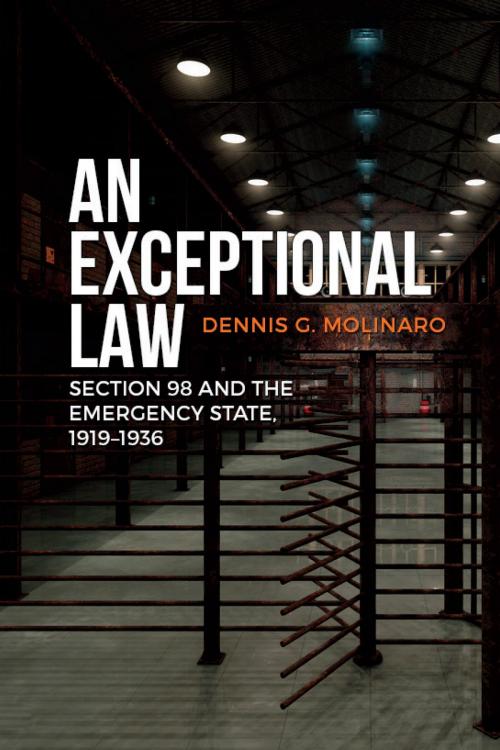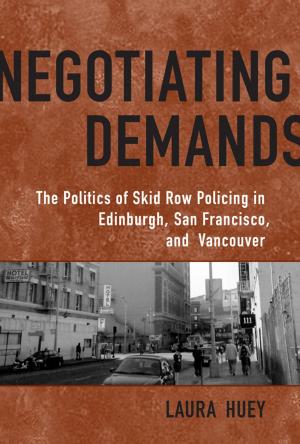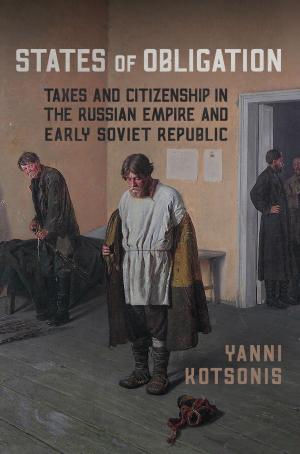An Exceptional Law
Section 98 and the Emergency State, 1919-1936
Nonfiction, History, Americas, Canada, Social & Cultural Studies, Political Science, International| Author: | Dennis G. Molinaro | ISBN: | 9781442629608 |
| Publisher: | University of Toronto Press, Scholarly Publishing Division | Publication: | May 8, 2017 |
| Imprint: | Language: | English |
| Author: | Dennis G. Molinaro |
| ISBN: | 9781442629608 |
| Publisher: | University of Toronto Press, Scholarly Publishing Division |
| Publication: | May 8, 2017 |
| Imprint: | |
| Language: | English |
During periods of intense conflict, either at home or abroad, governments enact emergency powers in order to exercise greater control over the society that they govern. The expectation though is that once the conflict is over, these emergency powers will be lifted.
An Exceptional Law showcases how the emergency law used to repress labour activism during the First World War became normalized with the creation of Section 98 of the Criminal Code, following the Winnipeg General Strike. Dennis G. Molinaro argues that the institutionalization of emergency law became intricately tied to constructing a national identity. Following a mass deportation campaign in the 1930s, Section 98 was repealed in 1936 and contributed to the formation of Canada’s first civil rights movement. Portions of it were used during the October Crisis and recently in the Anti-Terrorism Act of 2015. Building on the theoretical framework of Agamben, Molinaro advances our understanding of security as ideology and reveals the intricate and codependent relationship between state-formation, the construction of liberal society, and exclusionary practices.
During periods of intense conflict, either at home or abroad, governments enact emergency powers in order to exercise greater control over the society that they govern. The expectation though is that once the conflict is over, these emergency powers will be lifted.
An Exceptional Law showcases how the emergency law used to repress labour activism during the First World War became normalized with the creation of Section 98 of the Criminal Code, following the Winnipeg General Strike. Dennis G. Molinaro argues that the institutionalization of emergency law became intricately tied to constructing a national identity. Following a mass deportation campaign in the 1930s, Section 98 was repealed in 1936 and contributed to the formation of Canada’s first civil rights movement. Portions of it were used during the October Crisis and recently in the Anti-Terrorism Act of 2015. Building on the theoretical framework of Agamben, Molinaro advances our understanding of security as ideology and reveals the intricate and codependent relationship between state-formation, the construction of liberal society, and exclusionary practices.















